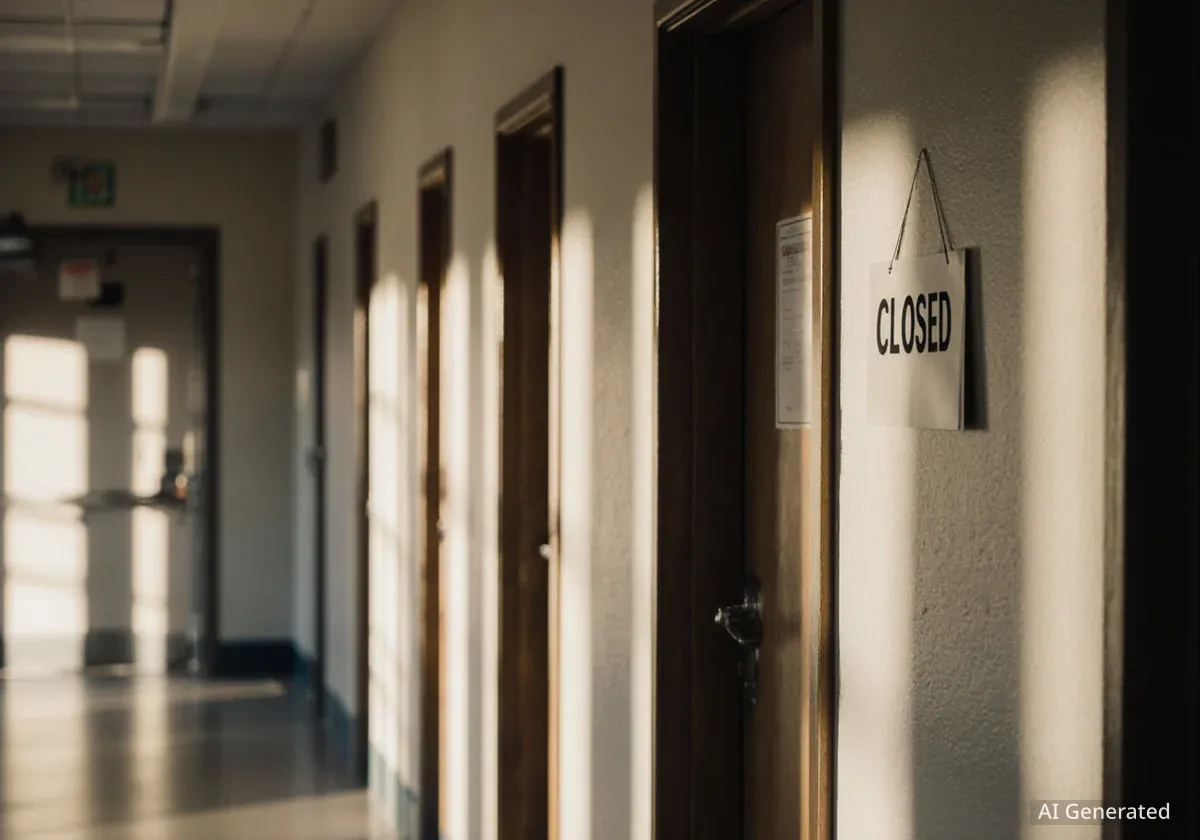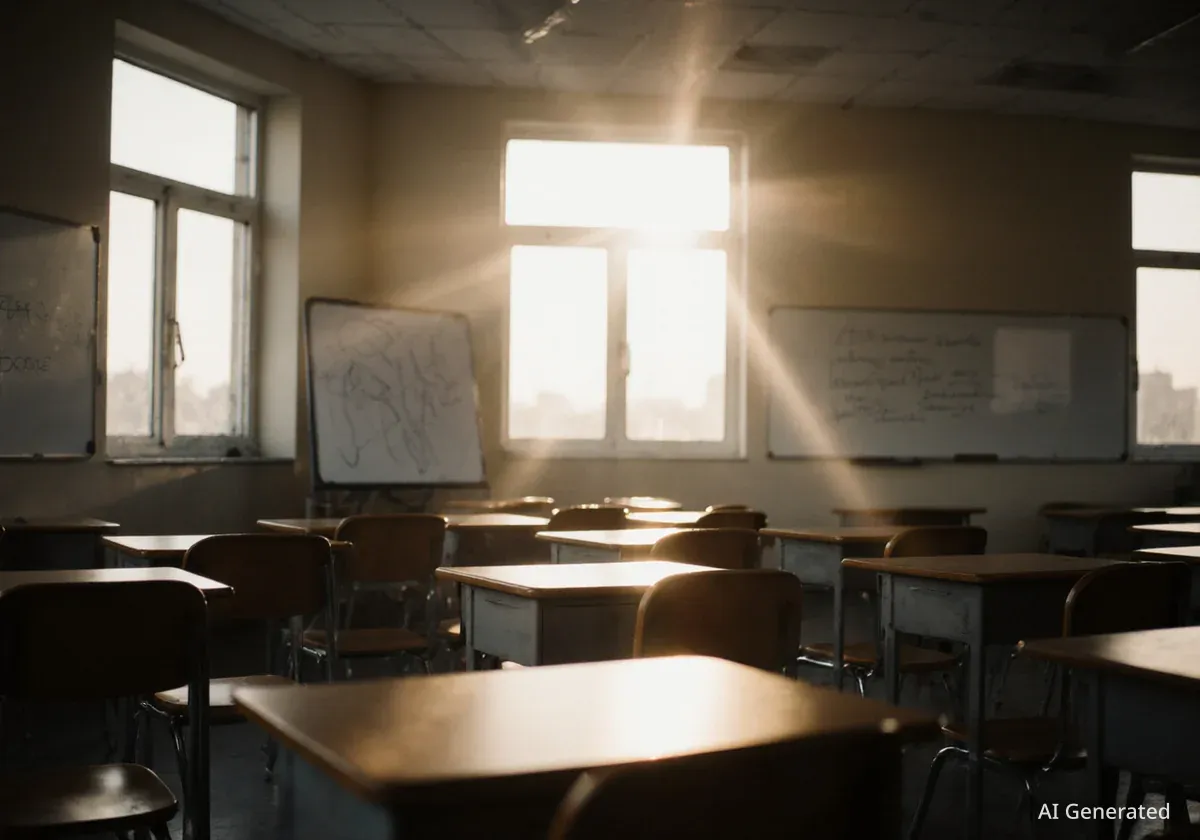Investigations into antisemitism allegations at US universities have seen a dramatic increase since the October 7, 2023, attacks and the subsequent conflict in Gaza. Data reveals that more inquiries were opened in the final two months of 2023 than in the previous two decades combined. This surge highlights a significant shift in how civil rights law is applied on campuses.
A new report details how Title VI of the 1964 Civil Rights Act, originally designed to prevent discrimination, has become a central tool in campus debates. This legislation is now frequently used to address issues related to pro-Palestinian activism and criticisms of Israel, leading to widespread concern among academic groups.
Key Takeaways
- Antisemitism investigations at US universities surged after October 7, 2023.
- More probes opened in late 2023 than in the prior 20 years.
- Title VI of the Civil Rights Act is now a primary tool to address campus speech.
- Many complaints focus on criticism of Israel rather than direct antisemitism.
- Federal funding cuts have become a new tactic in these investigations.
Federal Investigations Reach Unprecedented Levels
The scale of the increase is striking. In 2024, at least 39 new investigations have already launched, with projections indicating further rises. This trend continues from 2023, where the number of antisemitism inquiries surpassed all other types of racial discrimination cases combined. Under the current administration, antisemitism allegations are nearly twice as numerous as other racial discrimination cases.
The Middle East Studies Association and the American Association of University Professors compiled this data. Their report relies on publicly available records to track these investigations. It offers a detailed look into how federal policy is influencing higher education.
“In effect, the Civil Rights Act of 1964 is no longer being used to address racial discrimination in higher education,” said Aslı Bâli, president of the Middle East Studies Association. “Instead, Title VI has been repurposed as part of the administration’s broader effort to remake higher education in line with its rightwing political and cultural agenda.”
Key Statistic
Since 2004, 126 individual antisemitism investigations have been opened against 89 universities. A substantial portion of these began in late 2023 and 2024.
The Role of Title VI in Campus Debates
Title VI prohibits institutions receiving federal funds from discriminating based on “race, color, or national origin.” While religion is not explicitly a protected category, pro-Israel advocates successfully lobbied for protections to extend to Jewish students based on their ethnic or ancestral background. This change was formalized during the first Trump administration.
This expansion also involved applying a definition of antisemitism that often includes criticism of Israel. This definition has become a point of contention, as many complaints reviewed in the report focus heavily on speech related to Israel and Zionism.
The government cannot investigate individual faculty or students directly under Title VI. However, universities facing federal pressure have initiated their own internal investigations against faculty and staff. This creates a complex environment for academic freedom and campus discourse.
Defining Antisemitism and Criticism of Israel
The report analyzed 102 publicly available complaints. It found that only one of these complaints raised antisemitism claims unrelated to criticism of Israel. This suggests a significant overlap between accusations of antisemitism and critiques of Israeli policies or Zionism.
Campus life has seen deep divisions over the war in Gaza. Inflammatory language and accusations have become common. The disagreement over what constitutes antisemitism versus legitimate criticism of Israel is a central issue in these disputes.
Background on Title VI
Title VI of the 1964 Civil Rights Act aims to prevent discrimination in educational institutions that receive federal funding. Historically, it addressed racial discrimination. Its application has broadened over the past two decades to include allegations of antisemitism, often interpreted through the lens of criticism against Israel.
Impact on Universities and Federal Funding
For the first time this year, institutions have faced the threat of losing federal funding due to Title VI investigations. The Trump administration used alleged violations to cut or threaten billions in funds. This has forced some universities into settlement agreements involving significant concessions on academic freedom.
Cornell University, for example, is currently negotiating with the administration after officials reportedly froze $1 billion in federal funds. An anonymous complaint against a Cornell professor accused them of “spreading hate and lies” and “brainwashing students to hate and discriminate towards Jews.” Despite a lack of detailed evidence, the Office of Civil Rights launched an investigation.
Darryl Li, a University of Chicago professor and co-author of the report, commented on the nature of some complaints. “Some complaints are just rants with almost no evidence or detail,” he stated. “Government civil rights enforcement is now being driven by the equivalent of a YouTube comment section.”
Eastern Washington University Case Study
Another case involved Eastern Washington University. A parent filed a complaint, alleging their daughter felt “unsafe” due to pro-Palestinian protests. The parent claimed students chanted “Jews are committing genocide” without providing evidence. They also criticized a campus event titled “The Massacre in Gaza: Security or Genocide?” The Education Department opened an investigation, which remains pending.
Li emphasized the legal standard for intervention. He explained that discriminatory harassment must be “severe or pervasive” enough to create a “hostile environment” that interferes with education. He questioned how complaints focused on political speech, with only minor examples of antisemitic graffiti, meet this standard.
Complaint Origins
- At least 24% of investigations originated from groups or individuals unaffiliated with the university.
- Pro-Israel organizations were behind 78% of the complaints.
- One individual reporter filed 33 complaints, leading to 16 investigations, which he then covered as news.
Advocacy Groups Drive Many Complaints
A small group of pro-Israel actors is responsible for a significant portion of the surge in complaints. Organizations like StandWithUs have actively filed complaints. Roz Rothstein, co-founder and CEO of StandWithUs, stated that six of their complaints led to investigations. She emphasized that “Anti-Jewish bigotry on campuses is not a new issue; nor is it a political one.”
Zachary Marschall, editor-in-chief of the Campus Reform news site, personally filed 33 complaints. These led to 16 investigations, which he then reported as exclusive stories. Marschall explained his motivation: “I chose to speak up because higher education failed to see the humanity of students that were targeted and harassed due to their ethnicity, religion, and national origin.”
The administration has also formed a multi-agency taskforce to combat antisemitism. This initiative has contributed to the rise in cases, despite a significant reduction in the Education Department’s Office of Civil Rights staff and the closure of seven regional offices.





